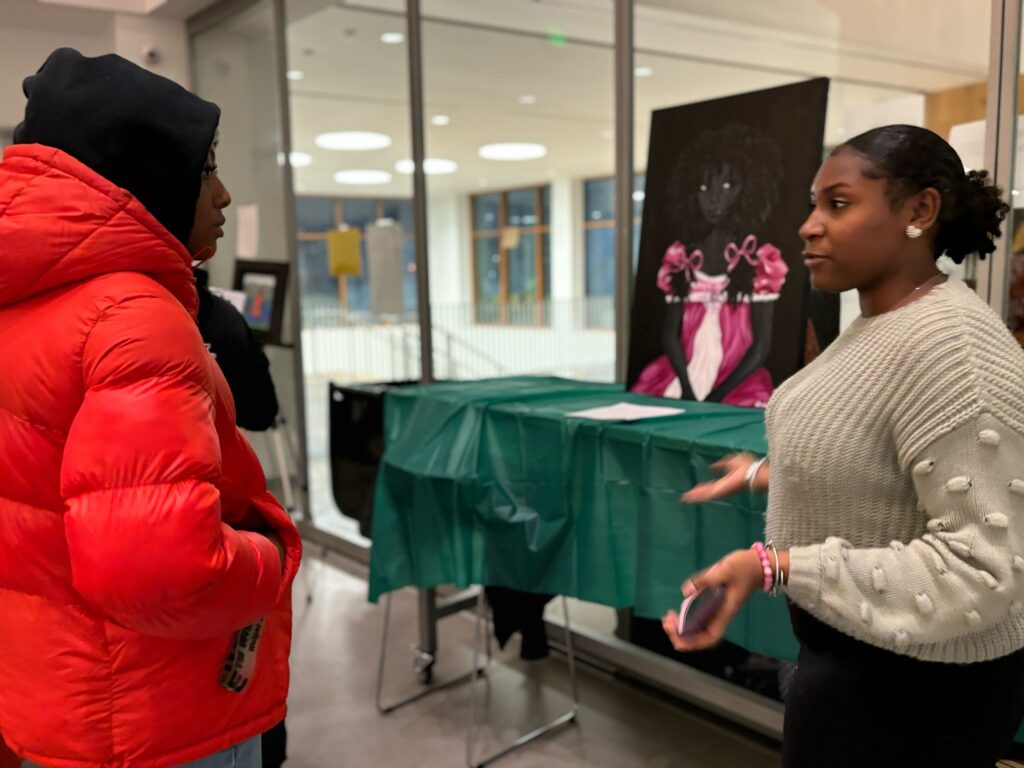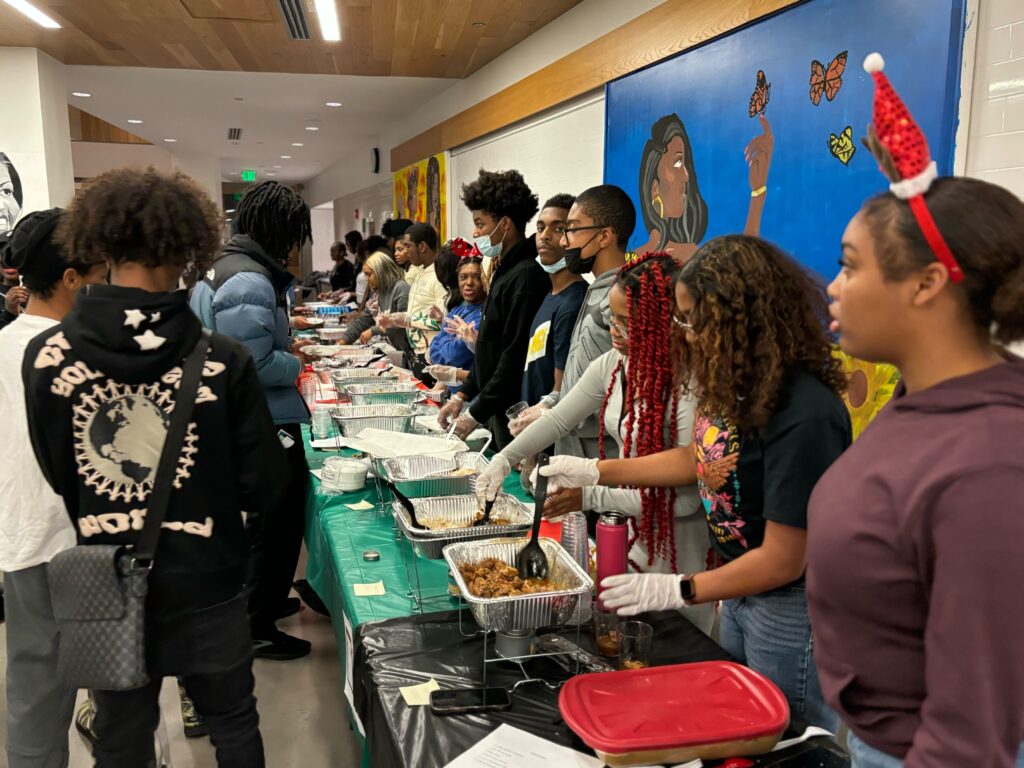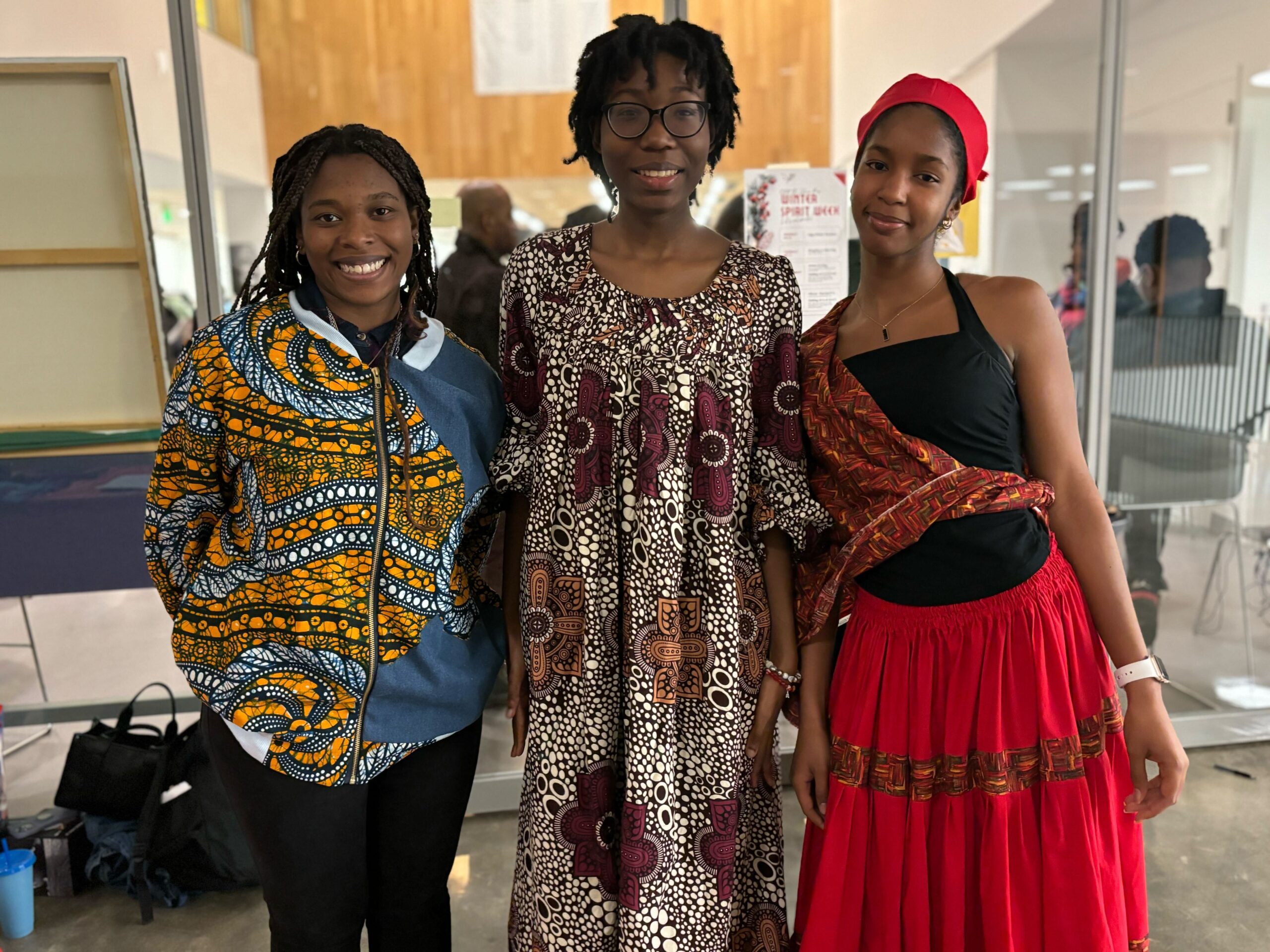On the evening of December 20th, KIPP DC College Prep came alive with the vibrant colors, flavors, and rhythms of the African Diaspora. The Celebrating African Diasporic Cultures Museum, a brainchild of KCP’s AP African American Studies class, unfolded as a celebration of diversity and a testament to the richness of Black cultures worldwide.
Guests were welcomed to a mesmerizing experience as the museum transformed the campus into a gallery of cultural exploration, where attendees engaged with exhibits, each offering a unique window into the diverse artifacts from the African Diaspora.
Mx. Anthony Perdue, AP African American Studies teacher at KIPP DC College Preparatory, shared the philosophy that fueled the event and the teaching approach in their classroom. “I want to make the learning more community-based, hands-on, and joyful,” Perdue explained. “When I looked at the AP African American Studies framework, one of the things that students need to know is about the diversity of the African Diaspora and the different cultures in the Diaspora, and I thought, what better way to do that than to celebrate all of those cultures through this project. The students worked so hard, and it’s great to see the vision come alive.”
The museum wasn’t just an academic exercise but a space for families, peers, and teachers to come together, learn with, and learn from the students. Perdue expressed, “Learning doesn’t always have to be top-down. We can learn just as much from them.”

One of the participants, KCP 11th-grader Jalynn, talked about the event’s significance. “It makes me feel pride in my heritage and where I come from,” emphasizing the personal connection to the cultures explored. He also noted, “It shows through adversity, the cultures of the Diaspora were able to create amazing things.”
Jamel, a student in Mx. Perdue’s AP African American Studies class, reflected, “I look forward to Mx. Perdue’s class not only because it’s taught me African American studies but also made me a better writer. We’ve done workshops, they’ve helped us become more analytical. So, we are learning our history and skills that we can use to become stronger in other classes.”
Perdue added, “You can be the best writer and academic, but if you don’t know yourself and where you come from and be grounded in who you are, you can be lost. What I believe our class does is bring the community and joy that is sometimes lacking in academia and what I hope my students walk away with is the strength of themselves and their history.”

The evening was a celebration of heritage, a testament to the resilience of the African Diaspora, and a reaffirmation of the transformative power of education. As Mx. Perdue aptly expressed, “If you existed in a system where you didn’t get to learn your history or your history wasn’t seen as valuable in an academic space, for that to be changed, there is a lot of healing. There’s a lot of learning and re-learning that comes with that. To be teaching this class and this group of students is a privilege and an honor.”

